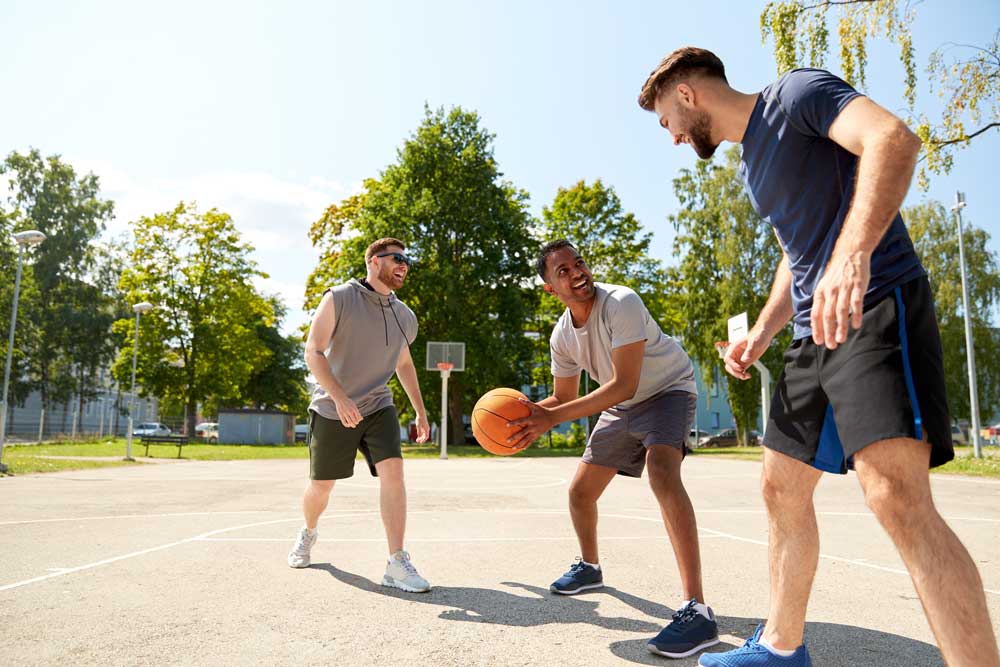The Importance of Play
March 7, 2024
Remember when you were a kid and you spent hours playing tag? Or climbing trees, riding a bike and jumping on trampolines?
Children play a lot. And studies show that this activity helps young people discover and learn* about the world.
But playing is important for all ages.
When people play, their brains move into a state like the states of hunger, fear or caring. Experts call this the play state*. Everyone’s play state is different. It is based on your personality and your preferences.
Playing creates new connections in your brain. It wires your brain for skills you use every day. For adults, playing increases resilience and can reduce stress.
There are different types of play. It can be structured like when you play a game. Or it can be free play where you create the rules of the activity. It can be easier for children to reach a state of play. Being playful can create satisfaction in your daily life.
Playing can boost creativity*, help you cope with stress* and improve physical health. You may find you are more motivated to exercise* if the exercise is fun.
You don’t have to play red rover or practice your jump rope skills. There are plenty of ways to add play into your health routines. Even if it has been years since you reached a play state, you can still get back to it.
Everyone’s definition of play is different. One person might enjoy puzzles, while another may find it boring. Find your play personality* to understand what play means to you.
Some people enjoy collecting things. Others like competing. Maybe you prefer to make or build things. Once you know what activities help you reach a play state, you can add those types of games or hobbies into your routines.
Here are a few ways to add play into your life.
Take up a sport
Playing sports can be an easy way to reach a play state for some people. Maybe you play golf or pick up pickleball or tennis. Challenge your friends to a game of soccer or tag football.
Get outside
There are plenty of ways to play in nature. Hiking, kayaking, canoeing, biking, boating or climbing are all good ways to play. And being outside has its own health benefits. Find more ways to explore South Carolina’s nature on our blog.
Play with others
Maybe you challenge your friends to a diving competition. Play frisbee with your kids. Host a game night with family or friends.
Challenge your mind
Maybe you like to play with your mind. You can play word games like crosswords or word searches. Focusing on a puzzle might help you reach your play state. In fact, doing jigsaw puzzles has been shown to improve memory* and problem-solving skills.
Find micro-moments
You don’t have to play for hours. Adding play into your life can be as simple as dancing in your kitchen while you cook dinner. Singing at the top of your lungs in your car.
Be spontaneous
Experts suggest allowing unprompted* or impulsive play in your life. Over-scheduling your time can add stress. Leave time in your schedule for playful activities.
Reflect
Not sure where to get started? Try to remember the activities you enjoyed as a kid. Did you love climbing trees? Maybe consider a rock-climbing wall. If you played with Play-Doh a lot, maybe you would enjoy a pottery class. If you loved playing tag, maybe you still play tag. It can be fun at any age.
Let go of perfectionism
Children don’t worry about being good when they play*. They just play. Let go for any pressures. There’s no wrong way to play.
Whatever type of play you decide to do, have fun. Allowing yourself to have fun can do wonders for your mental and physical health*.
*These links lead to third-party websites. Those organizations are solely responsible for the contents and privacy policies on their sites.

Related Reading
 Benefits of Playing Pickleball
Benefits of Playing Pickleball
Pickleball may be one of the fastest growing sports in the country. The sport can get you moving outside and comes with plenty of benefits no matter your fitness level.
Read More 5 Pandemic Habits to Keep
5 Pandemic Habits to Keep
In 2020, a BlueCross BlueShield of South Carolina health coach shared tips for staying healthy during the early days of the pandemic. Here are five habits to keep for a healthy new year.
Read More Explore South Carolina’s Seven Wonders
Explore South Carolina’s Seven Wonders
Visiting the seven wonders of South Carolina can be a great way to see the state. They include gorges, mountains, rivers and parks. Get outside this year to see more of what South Carolina has to offer.
Read More


















